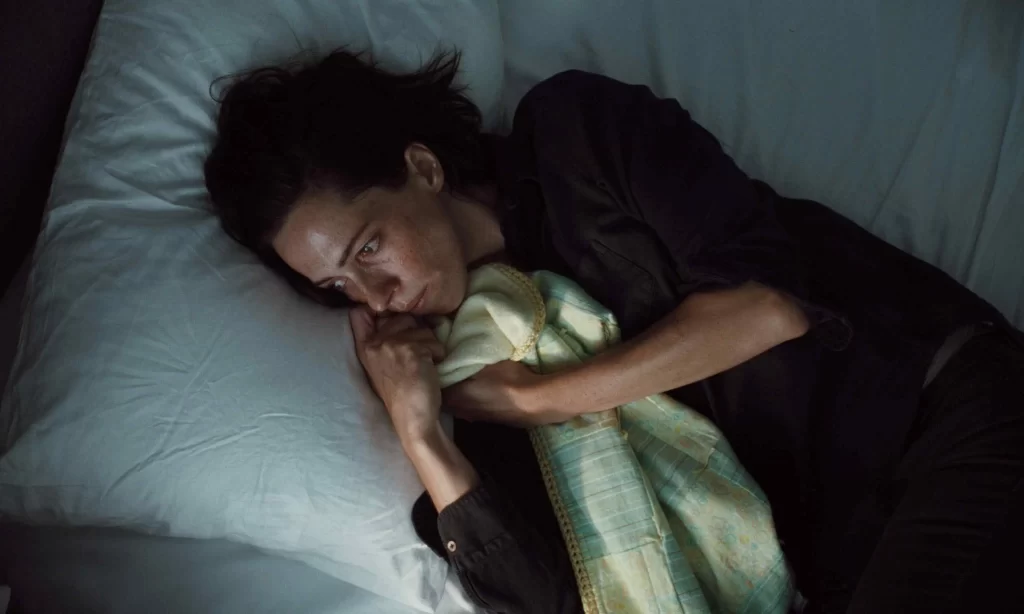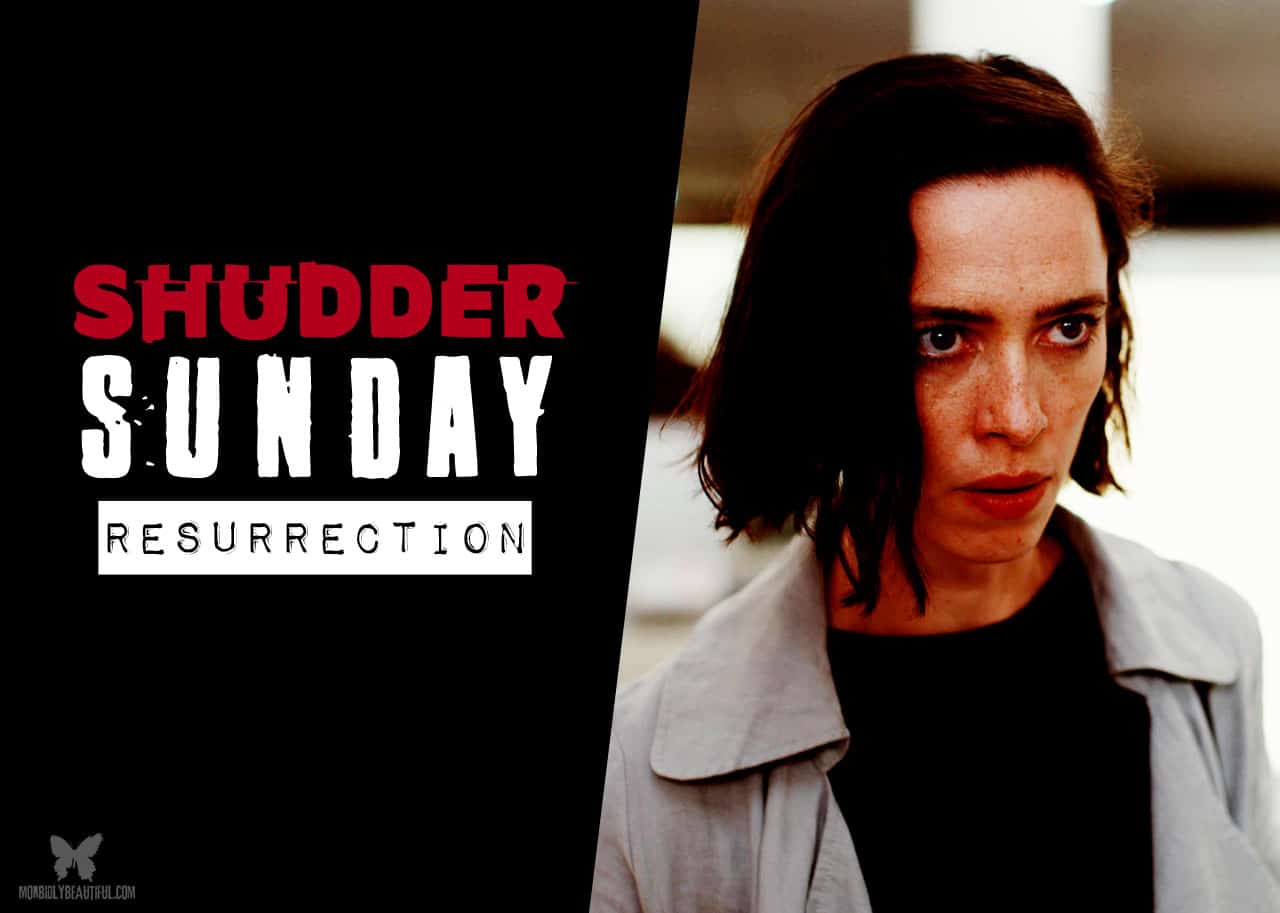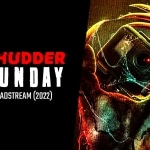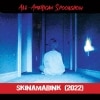Rebecca Hall shines in the psychological thriller “Resurrection” which offers a unique, fresh take on the stalker trope.

Resurrection is a 2022 Psychological Horror/ Thriller film written and directed by Andrew Semans. It stars the always-reliable Rebecca Hall as Margaret, a successful businesswoman and single mother who appears to be living a privileged, well-maintained life. However, when a dubious man appears in the periphery of her life — lurking around in the background of wherever she happens to be — Margaret’s grasp on reality begins to fray.
Margaret’s relationship with her daughter, Abbie (Grace Kaufman), is threatened when her paranoia and overwhelming concern for their safety manifests itself in increasingly erratic behavior from Margaret.
The omnipotent presence of the strange man continues to impact Margaret’s life negatively; her once pristine appearance regresses into disheveled attire, uncombed hair, and flinching body language.
The strange man in question is Margaret’s ex: an older man named David who once controlled every aspect of her life in an extremely abusive, coercive relationship.
During a horrific monologue, Margaret describes the abuses she experienced at the hands of David, couched as ‘’kindnesses’’ — a series of humiliations, subjugations, and mutilations that Margaret would suffer through to ‘’prove’’ that her love for David was reciprocal.
As an audience, we witness an insight into one of David’s ‘’kindnesses’’ as Margaret wanders into a park in the middle of the night to hold a ‘stress pose’ in her bare feet.

Stress Poses are often employed as torture techniques to extract information from prisoners. It is excruciating to witness Margaret suffer just to satiate David’s lust for submission from his ex-partner.
The most effective plot device of Resurrection lies within Margaret’s paranoia and how everyone in her life refuses to believe her.
During a particularly frustrating scene where she begs a policeman for help regarding her stalker, Margaret is told that David’s behavior (following her and finding out where she now lives) does not constitute a need for concern. The cop’s smug way of belittling her suffering made my blood boil.
This is a common trait displayed by many when dealing with cases of stalking, domestic abuse, and the harassment of women; the people in their lives simply do not want to align with the victim’s reality, and the victim is gaslit by the very people they love.
The script paints a very realistic portrayal of the horrors of abusive relationships, and I found myself squirming during Margaret’s monologue, where she described a mere fraction of what she overcame to survive.
Resurrection blurs the lines of reality and fantasy to mirror Margaret’s own grip on her sense of sanity and security.

If we believe in something so strongly, but this belief is denied by everyone in our lives, how can we truly be sure of what is real? How can we be confident our own projected paranoias are not getting the better of us?
The script utilizes this seed of doubt to full effect, and this is where the proverbial rug is pulled from beneath us as we begin to question the reality of what is being presented to us.
David confesses to Margaret something so grotesque, so disturbing that it cannot possibly be true.
We have experienced the series of events entirely from Margaret’s perspective. Therefore, when David finally reveals his ghastly story to Margaret, we begin to believe his version of events alongside Margaret; such is the strength of her belief.
Resurrection expertly plays with the concept of an Unreliable Narrator.
We care for Margaret, and we side with her even when our sense of disbelief is exploited.
The film’s penultimate reveal veers sharply into Body Horror territory.
Although predictable to those of us who have first-hand experience with abusive relationships, the twist is so sudden, shocking, and gratuitous that the ending retains its ability to astound.

Semans details Margaret’s abuse through monologues instead of showing anything explicit about the abuse she experienced. This results in a deeper emotional impact on the audience and a deeper connection to Margaret.
Hall astounds in this role; she is heart-achingly believable, and both her and Roth’s chilling performances were the strongest feature of the film.
The weaknesses stem from the floundering script, which cannot fully decide which direction it wishes to take the viewer. It veers between Psychological Drama, Thriller, and Body Horror yet lacks the momentum of tension that it sets up in the first act.
Though far from perfect, Resurrection promises a jaw-dropping performance from Hall, enough infuriating tension to keep you invested, and an ending that you may not see coming.
The Body Horror feels rather alien to a story that focuses clearly on domestic violence and the effects that trauma can have on the mind and body. However, the ending is cathartic and ambiguous enough to evoke a lingering emotional attachment.














Follow Us!